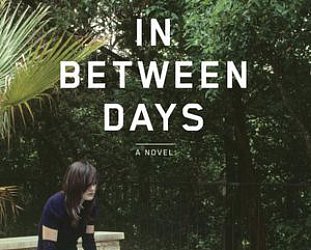Graham Reid | | 2 min read

The impending closure of Guantanamo Bay prison will bring an end to an especially dark chapter in American history and geo-politics . . . But perhaps not to the Orwellian newspeak so many Americans in public life resort to: of the suicides of three detainees at Guantanamo prison in 2006 the American base commander referred to the deaths as “asymmetrical warfare”, a bewildering phrase illustrating the distance between rude reality and political spin.
Moazzam Begg knows these all too well.
Yet had he not spent three years in various US military prisons after his arrest in Islamabad in January 2002 -- two of those years in solitary confinement -- Begg would still have had a remarkable story to tell.
Brought up in Birmingham by his Pakistani father who pragmatically sent him to a Jewish primary school (emphasis on education, religious and moral ethics, and similar dietary laws), the young Moazzam grew up with Jewish friends and an understanding of the culture.
He read avidly, went with his father (“a quintessential Englishman”) to Shakespeare’s birthplace and Wordsworth’s home, and loved movies. English literature and the fairy tales of Hans Christian Andersen took their place alongside the Torah at school and the Qu’ran at home.
In his mid-teens he loved Michael Jackson’s Beat It, played Space Invaders, and joined a local gang of first and second generation immigrant kids who came together after suffering racial abuse from National Front members and school mates.
As a teenager he wasn’t particularly interested in Islam and admits his first inspiration came not from the Qu’ran but from The Messenger, an Anthony Quinn film about The Prophet.
Begg tells all this with candour and sometimes self-effacing humour: he notes he even considered joining the British army, but then the First Gulf War crashed into his life: “I couldn’t see myself joining an army at war with an Islamic country”.
A pilgrimage to Saudi Arabia with his new stepmother and a subsequent trip to family in Karachi made him realised his religion was what bound him to others.
He returned to England, studied law, joined the local mosque, visited Afghanistan to observe the heroic mujahideen struggle against the Soviets (and was scared witless), and joined the Convoy of Mercy running aid to Muslims in Bosnia.
In addition to all this all this he married, had two children, travelled to various Middle East countries, picked up half a dozen languages, opened a bookshop, and became of interest to MI5.
It was suspicions about his movements and the bookshop which lead to his 2002 detention without charge and subsequent lock-up in US-run prisons at Kandahar, Bagram and finally Guantanamo Bay for 18 months.
The remembered and reconstructed details of these years -- and he is exceptionally charitable about some of his guards and interrogators -- make the second half of this increasingly chilling book.
Threats, isolation, interrogation under torture, inedible food, racial and religious insults, paranoia, protracted court procedures -- and eventually being returned to Britain, three years to the month after he had been grabbed at midnight in Islamabad.
It is a remarkable, calmly told, story of emotional and physical survival.
But early on Begg -- better educated than most of his captors and guards -- says when initially detained he vowed if anything happened to his family he would “hold America responsible for the rest of my life”.
That comes from an intelligent and articulate man. One can only imagine the seething anger in the families of those detained in Guantanamo Bay, camps across Europe, and those we don’t yet know about, must be feeling.
The Bush-driven war on terror with its abhorrent, inhumane and unlawful practices as outlined in this gripping book -- and tragic incidents of “asymmetric warfare” -- made new enemies with every sunrise.





post a comment